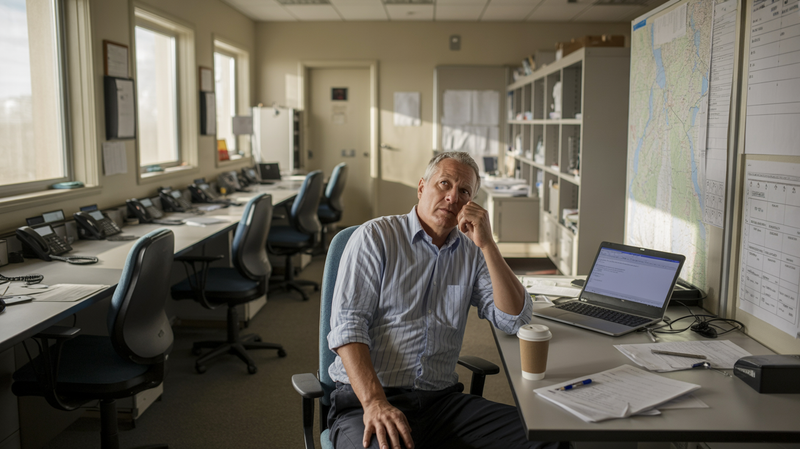Navigating the Future: Insights from Davos 2024 on AI, Sustainability, and Global Health
The 2024 World Economic Forum in Davos marked a significant milestone in the ongoing quest to address the world's most pressing challenges. Against the backdrop of a rapidly evolving global landscape, this forum brought together an eclectic mix of world leaders, business magnates, academics, and thought leaders. Their

The 2024 World Economic Forum in Davos marked a significant milestone in the ongoing quest to address the world's most pressing challenges. Against the backdrop of a rapidly evolving global landscape, this forum brought together an eclectic mix of world leaders, business magnates, academics, and thought leaders. Their collective goal was not just to discuss the current state of affairs but to forge a path forward in a world increasingly shaped by technological innovation, environmental concerns, and health crises. This article provides an in-depth exploration of the pivotal discussions that took place, focusing on key areas such as the advancements in artificial intelligence (AI), the pursuit of sustainable economic growth, the complex interplay between climate change and global health, and the imperative of preparing for future pandemics. Through these discussions, we gain valuable insights into the strategies, innovations, and collaborative efforts shaping our world and paving the way toward a more equitable and sustainable future.
AI and the Future Economy
Artificial intelligence (AI) stands at the forefront of the technological revolution, redefining the contours of the global economy. This section delves deep into the transformative impact of AI across various sectors, highlighting its role in driving efficiency, innovation, and economic growth. In healthcare, AI's ability to analyze vast datasets is revolutionizing diagnostics and patient care. In finance, algorithms are transforming how we understand risk and make investment decisions. Yet, this rapid advancement is not without its challenges. AI's disruption of traditional job markets, ethical considerations in algorithm design, and the growing need for a regulatory framework were key concerns raised at Davos. Participants underscored the critical balance that must be struck—leveraging AI's potential to drive growth while ensuring its alignment with ethical standards and societal well-being. The discussions at Davos emphasized the need for a collaborative approach, involving governments, industry, and academia, to develop policies and frameworks that foster responsible AI development.
Sustainable Economic Growth
The quest for economic growth that harmonizes with environmental sustainability was a central theme at Davos 2024. This section explores the initiatives and strategies discussed to integrate sustainability into the core of economic planning. Leaders at the forum emphasized the importance of transitioning to green technologies and sustainable business models. The role of governments and corporations in this transition was highlighted, focusing on how policies and investments can support an economy that operates within the planet's ecological boundaries. Examples and case studies presented at Davos demonstrated successful integrations of sustainability in business, showcasing how companies are not only reducing their environmental footprint but also discovering new opportunities for growth in the green economy. This part of the article explores how embracing sustainability is not just an environmental imperative but also a strategic economic opportunity.
Climate Security and Global Health
The intricate link between climate change and global health took center stage in this section. The discussions at Davos shed light on how climate-related challenges, such as extreme weather events, resource scarcity, and population displacement, have direct and profound impacts on public health. This segment delves into specific examples, illustrating how rising temperatures contribute to the spread of vector-borne diseases, and how extreme weather events strain healthcare systems. The need for comprehensive, integrative policies that address both climate change mitigation and adaptation strategies was a recurring theme. Participants stressed the importance of building resilient healthcare systems and enhancing global cooperation to tackle these interconnected challenges effectively.
Equitable Health Solutions
In the wake of global health crises, the issue of health equity was a focal point at Davos. This section discusses the World Health Organization’s efforts and global initiatives to ensure equitable access to healthcare and vaccines. Highlighting specific examples, such as the establishment of the mRNA vaccine manufacturing facility in Rwanda, the article explores how these efforts contribute to a more robust global health security framework. The discussion also touches on the broader implications of such initiatives, including how local production of vaccines can reduce dependency on global supply chains and improve response times in health emergencies. The section underscores the critical need for international collaboration and resource sharing to ensure that healthcare advancements reach all corners of the globe, leaving no country behind in the fight against pandemics.
Preparing for Disease X
The concept of "Disease X" represents the unknown future pandemic threat that demands global preparedness. This section builds on the lessons learned from the COVID-19 pandemic, analyzing the importance of readiness for any future health crisis. It discusses the proactive steps being taken by the WHO and other health authorities to enhance surveillance, research, and response capabilities. Drawing on recent experiences, the article highlights the need for a globally coordinated approach to pandemic preparedness, emphasizing the importance of early detection systems, rapid research and development of treatments and vaccines, and a cohesive global response strategy. The role of technology, such as AI and data analytics, in augmenting these efforts is also explored, showcasing how innovation can be harnessed to mitigate the impact of future pandemics.
Conclusion
In conclusion, the 2024 Davos World Economic Forum served as a critical platform for addressing some of the most complex and interconnected challenges facing our world today. This article has delved into the key themes discussed at the forum, including AI, sustainable growth, climate security, and health equity. It highlights the necessity of an integrated approach to these challenges, combining innovation, collaboration, and foresight. The insights gained from Davos underscore the importance of collective action and the need for a shared commitment to shaping a more equitable and sustainable future. As we navigate the intricacies of our interconnected world, the lessons and strategies discussed at Davos will be instrumental in guiding our path forward.




